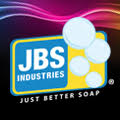Car Wash Forum
This is a sample guest message. Register a free account today to become a member! Once signed in, you'll be able to participate on this site by adding your own topics and posts, as well as connect with other members through your own private inbox!
Search results
-

Need help- RO System, how to give it maitenance?
Feel free to give us a call when you are in front of the system. We can identify the different components for you and recommend needed testing and maintenance of the RO and the pretreatment equipment. Russ 513-312-2343- Buckeye Hydro
- Post #2
- Forum: Self Serve
-

Resin
Water comes in the tank at the top, trickles down through the resin, goes into the bottom basket, up through the riser, and into the valve. Flow is reversed during a backwash.- Buckeye Hydro
- Post #7
- Forum: General Discussions
-

Resin
So I suspect either the lower basket is broken, or the top of the riser is not seated properly in the bottom of the valve. Maybe the oring that should go around the top of the riser is missing?- Buckeye Hydro
- Post #6
- Forum: General Discussions
-

Resin
When you rebuilt the softener, did you inspect, or replace the bottom basket (on the bottom of the riser)?- Buckeye Hydro
- Post #2
- Forum: General Discussions
-

RO Unit Recommendations
We prefer Axeon units. We've been spec'ing them for over 20 years. As an end user however you can't purchase directly from Axeon.- Buckeye Hydro
- Post #3
- Forum: In Bay Automatics
-

Water softener installation - what needs soft water? Sizing?
This is almost as soft as it will be coming out of a softener.- Buckeye Hydro
- Post #16
- Forum: Self Serve
-

Water softener installation - what needs soft water? Sizing?
You'd probably be looking at at least 21" or 24" diameter softener (mineral tank(s)) and 24" or 30" diameter brine tanks for that sort of flow. Consider how much floorspace you have available. Also you'd be looking at 1.5" or 2" valves. Russ- Buckeye Hydro
- Post #13
- Forum: Self Serve
-

Water softener installation - what needs soft water? Sizing?
As far as sizing - as mentioned above get a handle on your typical maximum gpm demand, and your water hardness (either in ppm or grains per gallon). The fact that you are on municipal water typically takes other potential complicating contaminants off the table (e.g., iron, manganese). Also...- Buckeye Hydro
- Post #12
- Forum: Self Serve
-

Water Softener
Great place to start. Some other things to think about, or make sure your vender thinks about: Your demand - is it around the clock 24/7? If so, you'll want a twin tank alternating softener. If not, a single tank softener should do just fine. What is the max reasonable flow (gallons per...- Buckeye Hydro
- Post #3
- Forum: General Discussions
-

Upgrading an RO system
If your demand for purified water is low enough, also consider using multiple 2.5" diameter membranes - where the minimum recommended concentrate flow is 1 GPM rather than 3 GPM for the 4" membranes.- Buckeye Hydro
- Post #44
- Forum: General Discussions
-

Water softener help
Are you talking about the air check valve? The float valve should only be set as a fail safe to prevent over filling.- Buckeye Hydro
- Post #8
- Forum: Self Serve
-

Water softener help
Some good comments above. Start by determining the Total Compensated Hardness in your raw feedwater. To calculate your Total Compensated Hardness you'll need to know: Total Hardness (or the amount of Calcium and Magnesium) Iron Manganese Next, determine the diameter and height of your...- Buckeye Hydro
- Post #6
- Forum: Self Serve
-

RO - Membranes
So here's some early morning jargon and math for you. If your Feedwater is 280 ppm, and your permeate (RO water) is 85 ppm, then your rejection rate is 1 - (85/280) = 1 - (0.30) = 0.70, or 70% You want the rejection rate to be something north of 95% - meaning the membranes would be rejecting...- Buckeye Hydro
- Post #20
- Forum: Self Serve
-

RO - Membranes
Better quality RO systems will come with a coiled up cable with bare wire leads labeled "prefiltration" or something like that for this purpose. Or some will have contacts on the controller where these switch wires can be connected. Check your manual. If none of those things exist, we install...- Buckeye Hydro
- Post #10
- Forum: Self Serve
-

RO - Membranes
This is a microswitch installed on the carbon tank valve. A two conductor cable runs from the switch to the RO, and signals the RO to shut off if it is running when the carbon tank goes into backwash. This is especially useful if there is a high likelihood of the RO running when you have the...- Buckeye Hydro
- Post #8
- Forum: Self Serve
-

RO - Membranes
You should be getting more than a year out of your membranes. The use-able lifespan of the membranes is most affected by your pretreatment - what you do to the feedwater before it reaches the membrane. In your case: Contact your water utility and see what they use as a disinfectant. It will...- Buckeye Hydro
- Post #6
- Forum: Self Serve
-

JC Sediment Filter - Oring size
Here are the three common Max Flow (aka "Big Blue") housing oring styles. The orings are NOT interchangeable among them. Does one of the three match yours? We should have all three in stock.- Buckeye Hydro
- Post #6
- Forum: Self Serve
-

JC Sediment Filter - Oring size
That housing takes a 4.5" x 10" filter (nominal). There are many brands of that housing, and the oring size is not standard among brands. Is there anything on the housing to tell you what brand it is? We have orings for three brands in stock.- Buckeye Hydro
- Post #4
- Forum: Self Serve
-

Upgrading an RO system
Yes they would - that's one reason it is so important to pretreat for scale forming minerals like calcium and magnesium (aka hardness). Yes - "recycle" refers to taking some of the concentrate and routing it back to the intake side of the pump. Some lower-end RO's include a recycle function...- Buckeye Hydro
- Post #43
- Forum: General Discussions










